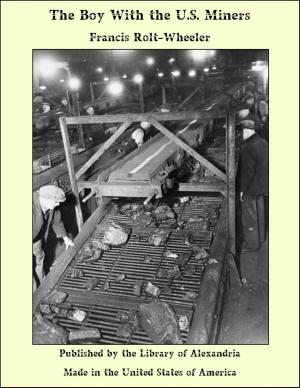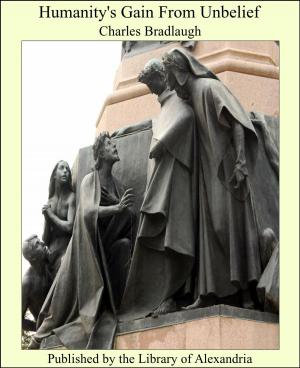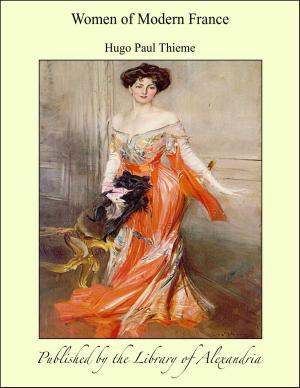| Author: | Grant Allen | ISBN: | 9781465531759 |
| Publisher: | Library of Alexandria | Publication: | March 8, 2015 |
| Imprint: | Language: | English |
| Author: | Grant Allen |
| ISBN: | 9781465531759 |
| Publisher: | Library of Alexandria |
| Publication: | March 8, 2015 |
| Imprint: | |
| Language: | English |
A CORNISH LANDLORD. "Then you don't care for the place yourself, Tyrrel?" Eustace Le Neve said, musingly, as he gazed in front of him with a comprehensive glance at the long gray moor and the wide expanse of black and stormy water. "It's bleak, of course; bleak and cold, I grant you; all this upland plateau about the Lizard promontory seems bleak and cold everywhere; but to my mind it has a certain wild and weird picturesqueness of its own for all that. It aims at gloominess. I confess in its own way I don't dislike it." "For my part," Tyrrel answered, clinching his hand hard as he spoke, and knitting his brow despondently, "I simply hate it. If I wasn't the landlord here, to be perfectly frank with you, I'd never come near Penmorgan. I do it for conscience' sake, to be among my own people. That's my only reason. I disapprove of absenteeism; and now the land's mine, why, I must put up with it, I suppose, and live upon it in spite of myself. But I do it against the grain. The whole place, if I tell you the truth, is simply detestable to me." He leaned on his stick as he spoke, and looked down gloomily at the heather. A handsome young man, Walter Tyrrel, of the true Cornish type—tall, dark, poetical-looking, with pensive eyes and a thick black mustache, which gave dignity and character to his Otherwise almost too delicately feminine features. And he stood on the open moor just a hundred yards outside his own front door at Penmorgan, on the Lizard peninsula, looking westward down a great wedge-shaped gap in the solid serpentine rock to a broad belt of sea beyond without a ship or a sail on it. The view was indeed, as Eustace Le Neve admitted, a somewhat bleak and dreary one. For miles, as far as the eye could reach, on either side, nothing was to be seen but one vast heather- clad upland, just varied at the dip by bare ledges of dark rock and a single gray glimpse of tossing sea between them. A little farther on, to be sure, winding round the cliff path, one could open up a glorious prospect on either hand over the rocky islets of Kynance and Mullion Cove, with Mounts Bay and Penzance and the Land's End in the distance. That was a magnificent site—if only his ancestors had had the sense to see it. But Penmorgan House, like most Other Cornish landlords' houses, had been carefully placed—for shelter's sake, no doubt—in a seaward hollow where the view was most restricted; and the outlook one got from it, over black moor and blacker rocks, was certainly by no means of a cheerful character. Eustace Le Neve himself, most cheery and sanguine of men, just home from his South American railway-laying, and with the luxuriant vegetation of the Argentine still fresh in his mind, was forced to admit, as he looked about him, that the position of his friend's house on that rolling brown moor was far from a smiling one
A CORNISH LANDLORD. "Then you don't care for the place yourself, Tyrrel?" Eustace Le Neve said, musingly, as he gazed in front of him with a comprehensive glance at the long gray moor and the wide expanse of black and stormy water. "It's bleak, of course; bleak and cold, I grant you; all this upland plateau about the Lizard promontory seems bleak and cold everywhere; but to my mind it has a certain wild and weird picturesqueness of its own for all that. It aims at gloominess. I confess in its own way I don't dislike it." "For my part," Tyrrel answered, clinching his hand hard as he spoke, and knitting his brow despondently, "I simply hate it. If I wasn't the landlord here, to be perfectly frank with you, I'd never come near Penmorgan. I do it for conscience' sake, to be among my own people. That's my only reason. I disapprove of absenteeism; and now the land's mine, why, I must put up with it, I suppose, and live upon it in spite of myself. But I do it against the grain. The whole place, if I tell you the truth, is simply detestable to me." He leaned on his stick as he spoke, and looked down gloomily at the heather. A handsome young man, Walter Tyrrel, of the true Cornish type—tall, dark, poetical-looking, with pensive eyes and a thick black mustache, which gave dignity and character to his Otherwise almost too delicately feminine features. And he stood on the open moor just a hundred yards outside his own front door at Penmorgan, on the Lizard peninsula, looking westward down a great wedge-shaped gap in the solid serpentine rock to a broad belt of sea beyond without a ship or a sail on it. The view was indeed, as Eustace Le Neve admitted, a somewhat bleak and dreary one. For miles, as far as the eye could reach, on either side, nothing was to be seen but one vast heather- clad upland, just varied at the dip by bare ledges of dark rock and a single gray glimpse of tossing sea between them. A little farther on, to be sure, winding round the cliff path, one could open up a glorious prospect on either hand over the rocky islets of Kynance and Mullion Cove, with Mounts Bay and Penzance and the Land's End in the distance. That was a magnificent site—if only his ancestors had had the sense to see it. But Penmorgan House, like most Other Cornish landlords' houses, had been carefully placed—for shelter's sake, no doubt—in a seaward hollow where the view was most restricted; and the outlook one got from it, over black moor and blacker rocks, was certainly by no means of a cheerful character. Eustace Le Neve himself, most cheery and sanguine of men, just home from his South American railway-laying, and with the luxuriant vegetation of the Argentine still fresh in his mind, was forced to admit, as he looked about him, that the position of his friend's house on that rolling brown moor was far from a smiling one















